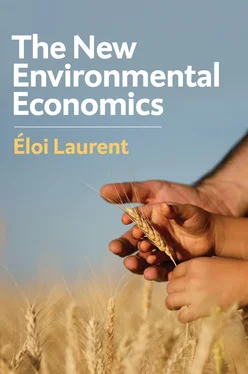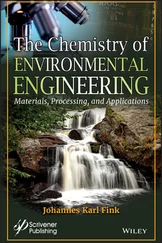What is more, our collective success has allowed us to change for the better our biological and social self: We have become taller, stronger, healthier, smarter, freer, and, most probably, happier. To take just one striking example of our exponential progress, in the last fifty years alone, human health has been improved more than in the seven million years or so of human presence on Earth. Seen from this perspective, the future of humanity calls for reasonable optimism, if not outright cheerfulness. With the right combination of innovation and incentives, no insurmountable obstacle will stand in the way of our ingenuity.
The other view is decidedly grimmer. It argues that humanity is, to put it mildly, deeply disappointing: In a matter of a century, even more so since 1950, we have managed to substantially destroy our own habitat, the most hospitable planet for us in the Universe, harming our own well-being and that of our successors for shortsighted gains. To take just one illustration of how fast we are degrading the biosphere, cumulative man-made carbon dioxide emissions causing climate change in the last fifty years alone represent 70% of all recorded emissions (since 1750). Homo sapiens sapiens , the one who knows he knows, appears to be losing the great race between his intelligence and his avidity.
Even more frustratingly, our planet’s riches have been squandered for the benefit of a handful among us: Our societies have become increasingly unequal, fragmented, and polarized in the last thirty years; all the while environmental degradations have accelerated. The planet and life on it will survive our inconsequence, as they have in their billions-year long history, but our near future is gloomy and we are to blame for it. We are right to be afraid of tomorrow. How do we make sense of these two competing narratives? Is one simply wrong while the other is right? Can they be reconciled at all?
The first possible bridging of these two accounts argues that both have their share of the truth; what really separates them is their time horizon: What was an undeniable success is turning before our eyes into an irrefutable failure. Yes, we were able to evolve toward prosperity but we are now destroying its very foundations, and we have to understand why. What kind of social dynamics are becoming dysfunctional to the point of threatening not just our well-being but our very existence?
Another way of doing justice to both arguments is to consider space rather than time: As far as we know, no human community can live outside of the biosphere, so that our exceptional well-being is conditional on our environment. While we have been made to believe that our welfare depends on extra-terrestrial systems powered by self-sufficient innovation, we are actually approaching the finite limits of our “Goldilocks” planet. Humanity’s well-being has become detrimental to its sustainability: Our social systems have become self-destructive, a reality our economic systems and metrics obscure. This is why we have to find practical ways to value our environment and turn the vicious social-ecological spiral we are caught in into a virtuous circle. And we have to find them fast. These are the questions this book attempts to explore.
This is not, in fact, a standard economics textbook. The main reason why is because standard economics has evolved in the last decades of the twentieth century toward a much too narrow approach of social cooperation and human development, fixated on abstract obsessions like efficiency and growth. This book, instead, wants to equip readers with the data, analyses, and policy tools to understand and eventually face the complex social and ecological challenges of the twenty-first century. The positioning of this book, and therefore its purpose, is thus not dictated by ideological inclination but by a concern for relevance.
Yet, this is indeed an environmental economics textbook, which starting point should be the definition of the kind of environmental economics readers can expect to find in it. To put it simply, environmental economics today finds itself caught between physics and ethics, between the inescapable realities of the natural world and the justice imperative of human societies.
Economics entertains a special relation with physics. From the early days of the founding fathers of modern economics, Adam Smith, David Ricardo, and the whole Scottish and English classical school, economics has been fascinated by the quantitative precision and universality of physics laws. We now know that Adam Smith has been influenced by Newton. This fascination was on full display when economics attempted to break free from philosophy and political science, posturing as a science at the turn of the twentieth century. Then, economics started to dream of becoming the physics of the social world. 1
And yet, economics has all but forgotten physics, inventing a closed-circuit world where the sun apparently does not shine, infinite growth is useful and desirable and all that exists and matters on the planet are households, firms, and governments. In the beginning of the twenty-first century, economics is in a sense caught up by physics and again dwarfed by it: Climate change has the power to destroy every single economy around the planet, including the best-managed, efficiency-driven, and most-developed ones. Economics today, very much like in the eighteenth century, is still dominated by physics: There is no economy possible outside of the biosphere and its biophysical laws. The large natural household that Ernst Haeckel had in mind when he coined the term “ecology” imposes its laws on the small human household to which Aristotle and Xenophon referred when they invented the word “economics.” It will never be the other way around, whatever power humans may acquire on Earth.
The other glaring blind spot in today’s mainstream economic analyses, models, and metrics is ethics and, more precisely, the analysis of distributional issues and the consideration for justice principles. And yet Arthur Cecil Pigou (1920) made it clear that injustice is in fact economists calling when he wrote: “Wonder, Carlyle declared, is the beginning of philosophy. It is not wonder, but rather the social enthusiasm which revolts from the sordidness of mean streets and the joylessness of withered lives, that is the beginning of economic science.” David Ricardo or John Stuart Mill thought that inequality was the key issue of economic analysis. But at the end of the nineteenth century, political economy centered on justice gave way to an efficiency focused would-be “economic science” largely blind to inequality and fairness.
While inequality economics is making a much-needed comeback, environmental economics must embrace this revolution toward reality. Environmental economics is still too focused on mainstreaming environmental crises for decision-makers using standard economics frameworks and toolboxes: models, equilibrium, markets, prices. Because it is an attempt to speak the language of power, it might seem like a commendable effort, but it should mostly be looked at critically: The environment is not an economic issue among others. The current destruction of the biosphere, its social causes and consequences, actually offers a chance to go back to the key question of economic analysis: justice.
Linking physics and ethics through environmental economics is precisely what is needed to understand our world, a world where inequality and ecological crises feed one another. Sustainability is intertwined with justice: Human communities depend on natural ecosystems, environmental issues are social matters, planetary boundaries are human frontiers. This is a new day for environmental economics.
We have indeed lived through three ages of economics of the environment. In the first age – resource economics (which started roughly in the mid nineteenth century) – the central question was the efficient management of scarce natural resources, some renewable, some non-renewable. In the second age, externality economics took center stage (from the 1920s onward), with scholars seeking practical ways to lower degradations of the biosphere from economic activity by changing consumption and production behaviors through well-designed policy. Our time, since the early 1980s, has seen the emergence of sustainability economics as a potential answer to a hugely complex and daunting issue: Can we prevent the biosphere from collapsing under the weight of human domination? Can we maintain human well-being on Earth and if so, how, for whom, for how long?
Читать дальше












